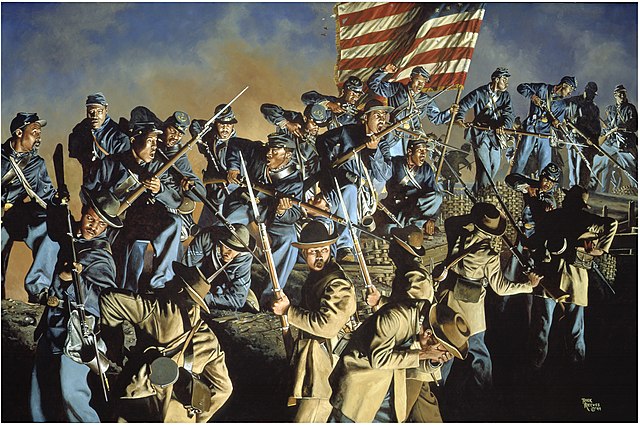William Harvey Carney was an American soldier during the American Civil War. Born enslaved, he was awarded the Medal of Honor in 1900 for his gallantry in saving the regimental colors during the Battle of Fort Wagner in 1863. The action for which he received the Medal of Honor preceded that of any other African American Medal of Honor recipient; however, his medal was actually one of the last to be awarded for Civil War service.
Some African Americans received the Medal of Honor as early as April 1865.
Carney, wearing the Medal of Honor he received in 1900.
Carney c. 1864
Second Battle of Fort Wagner
The Second Battle of Fort Wagner, also known as the Second Assault on Morris Island or the Battle of Fort Wagner, Morris Island, was fought on July 18, 1863, during the American Civil War. Union Army troops commanded by Brig. Gen. Quincy Gillmore launched an unsuccessful assault on the Confederate fortress of Fort Wagner, which protected Morris Island, south of Charleston Harbor. The battle came one week after the First Battle of Fort Wagner. Although a Confederate victory, the valor of the Black Union soldiers in the battle was hailed, which had long-term strategic benefits in encouraging more African-Americans to enlist allowing the Union to employ a manpower resource that the Confederacy could not emulate for the remainder of the war.
Assault on Fort Wagner, Charleston Harbour, on the night of July 18
Depiction of the battle in the painting The Old Flag Never Touched the Ground
Sappers of the 1st New York engineer regiment digging a sap with sap rollers towards the fortifications of Fort Wagner, September 1863
William Harvey Carney





